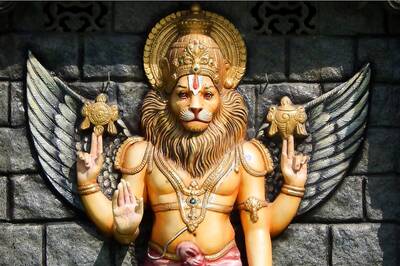
views
Until a couple of decades ago, sports meets always had mothers of athletes packing huge packets of glucose, which were taken just as such or mixed with water. As years rolled by, the glucose was replaced by many sugar-sweetened readymade drinks, and recently, the most favourite one has been the ‘Gatorade.’
This was a special drink developed by the University of Florida and it was first tested out on the University’s athletic team, the Gators. Therefore the name, Gatorade. This is now marketed by Pepsico and used by sportspersons the world over.
University of Florida continues to develop nutritious health drinks, both related to sports and otherwise. One of the most promising ones, ‘Enterade’, was developed by a team headed by a Malayali, Dr Sadasivan Vidyasagar, an assistant professor in the Radiation Oncology Department of the University. By drinking Enterade, cancer patients are expected to tolerate the toxicity of chemotherapy more. Experiments are also on to check whether this could be used by marathon runners to keep up the stamina.
While such exciting research was going on in several labs, the 244th American Chemical Society (ACS) meeting, held a couple of days ago, had a team from Indiana University Southeast presenting a paper that tender coconut water is an excellent sports drink, with more potassium content (1,500 mg/litre) than either Gatorade or Powerade (of the Coca Cola company), that had only 300 mg potassium per litre.
Presenting the paper at the ACS meet, scientist Chhandashri Bhattacharya also warned that people who engage in strenuous exercise must take it with a little salt as coconut water is low in sodium and that coconut water alone cannot replace the lost sodium. For those who are into light exercises, coconut water is just ideal, she said.
In the press release issued by the ACS, Chhandasri Bhattacharya said: ‘’When you get cramps in your muscles, potassium will help you to get rid of it. It is a healthy drink that replenishes the nutrients that your body loses during a moderate workout.’’
The samples analysed by the team found that eight ounces of coconut water contain 63 calories, 3 grams of fibre, 36.6 mg potassium, 325 mg sodium, 57.6 mg calcium and 60 mg magnesium. Compared with most sports drinks, it is also lower in calories. Does all this mean that our coconut farmers are finally going to make it big, sooner or later?
If our coconut farming is to be saved thus, so would our rice farming too. For, Dr Vidyasagar, when he was in Kerala last, had said that the best health drink he has ever come across is our traditional ‘pazhankanji’. ‘Pazhankanji’, after a night’s fermentation, used to be an instant energy provider for most of our agricultural workforce and it used to be the first thing that our grandmothers prescribed for fatigue.
The University of Florida might study the nutrient content of ‘pazhankanji’, but currently it is engaged in the studies with the Enterade. Not just cancer patients and marathon runners, even soldiers on the warfront who may get exposed to radiations from bomb explosions may find Enterade a useful drink, offering protection from the harmful radiations.
Enterade might also be developed into a space drink for astronauts, but will our tender coconut water find such applications?
(Don’t forget to keep track of the Sci-bug every Saturday)

















Comments
0 comment